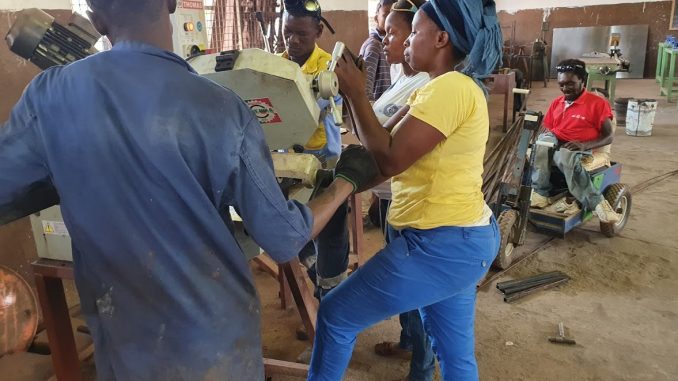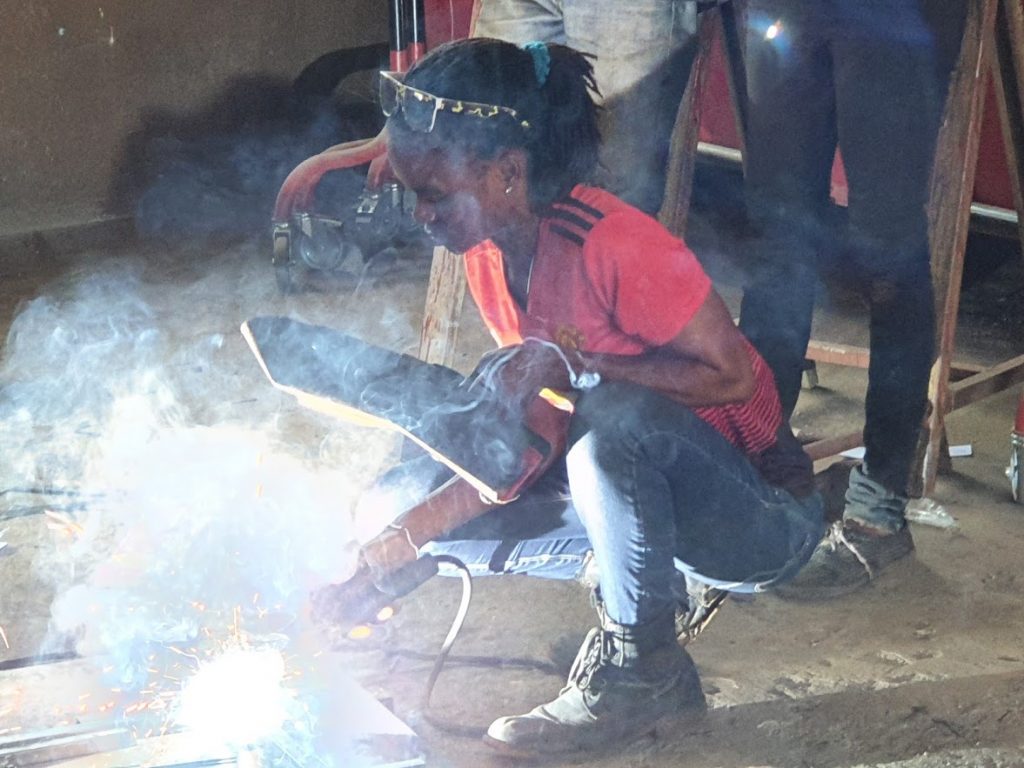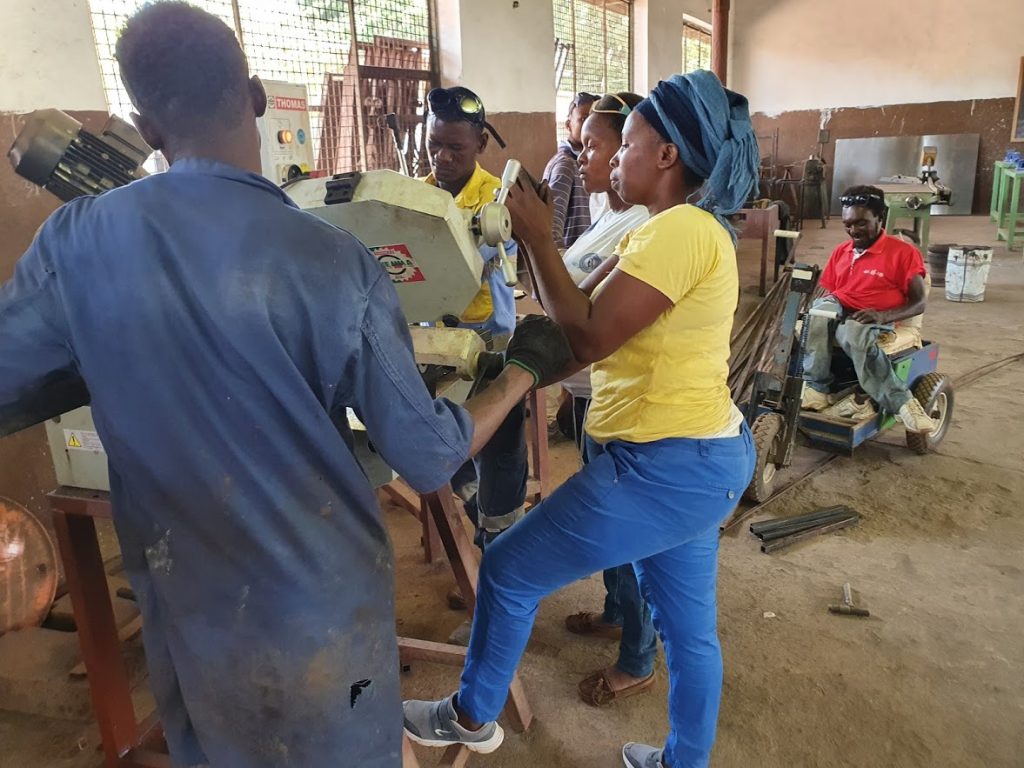
Technical and Vocational Education and Training (TVET) in Sierra Leone has, over the years, struggled with the common perception that it is a last resort option for the academically weak. Plagued with funding problems and inadequate financial support from Central Government, TVET institutions have found it difficult to take their place among their global counterparts as a vital part of the engine of social and sustainable development. The European Union-funded “Support to the Education Sector in Sierra Leone” (SESSiL) started in 2017, with the specific aim of increasing the quality of teaching and learning in the country. While the significant focus has been placed on promoting equal access to education and strengthening education system management in the country, a strategic pillar of the programme targets enhanced development of TVET. In 2019, Sorie Conteh, a welding workshop apprentice made the decision to enroll at the Murialdo Institute of Management and Technology, Kissy, Freetown, one of the foremost TVET institutions in the country. Here, he hoped to formalize his qualification as a metalwork professional and become better positioned to gain employment in the world of work. Joining a class of fellow first-year students in the Mechanical Engineering department, he soon began experiencing a problem common to TVET institutions across the country. Tools such as welding machines, hack saws and workbenches were so few that students had to take turns to use them in the practical class sessions. According to the Principal of the Institute, Brother Joseph Sheku Tarawali, the lack of tools and machinery meant that seventy-five percent of instruction had to be theory-based. “The teaching situation was such that lecturers had to draw certain tools on a blackboard and then explain their functions to their classes,” he explained. This meant that students were graduating without hands-on experience with the tools of their chosen practice, ultimately reinforcing the negative perception of this crucial branch of higher education. The situation was to soon change when the Support to the Education Sector in Sierra Leone programe partnered with the German Federal Ministry for Economic Cooperation and Development to co-finance the ‘Project on TVET’. Delegated to the Deutsche Gesellschaft für Internationale Zusammenarbeit (GIZ), the project sought to fill that resource gap. In February 2020, computerized equipment and mechanical tools collectively worth €180,000 were donated to the Murialdo Institute of Management and Technology in Freetown, the Eastern Polytechnic in Kenema, the St. Josephs Technical Institute in Lunsar and the Government Technical Institute in Kissy. The arrival of the new equipment had an immediate impact on the quality of instruction at the institutes. Just weeks prior, students would have had to access Youtube videos to see a universal milling machine or straight blade power saw in action. Salieu Fofanah, a lecturer and workshop technician at the Murialdo Institute was delighted to no longer have to rely on long descriptions on the use and functions of a lathe machine. Now he could demonstrate how to use one to turn bolts, shafts, and other implements, and have his students practice for themselves. Sorie Conteh and his classmates now had individual welding machines at their disposal during their welding sessions and were able to use them all at once, under the instruction of their Mechanical Engineering lecturer Osman Mansaray. “Now I can instruct the students to weld door and window frames while I perform a supervisory role,” he said. “The more these students learn, the more empowered they become to show the outside world what they are made of. Hopefully more people will see what they have accomplished and be inspired to enroll at the institute.”Brother Tarawali confirms that the introduction of the new equipment has had a massive impact on the institute’s teaching capacity. “Things have changed. Now we’re trying to restructure the timetable to give the students a balance of fifty percent theory and fifty percent practical work,” he says. “This enables us to effectively train technicians and skilled workers to have a real impact on the world of work.” A total shift in the way that Technical and Vocational Education Training is perceived in Sierra Leone might still be a way off, but through the Project on TVET important steps have clearly been taken.

Technical Student welding steel plate at the St Joseph’s Technical and Management Institute Lunsar

Metal Work trainees at the Technical and Management Training Institute workshop at Lunsar.

Leave a Reply